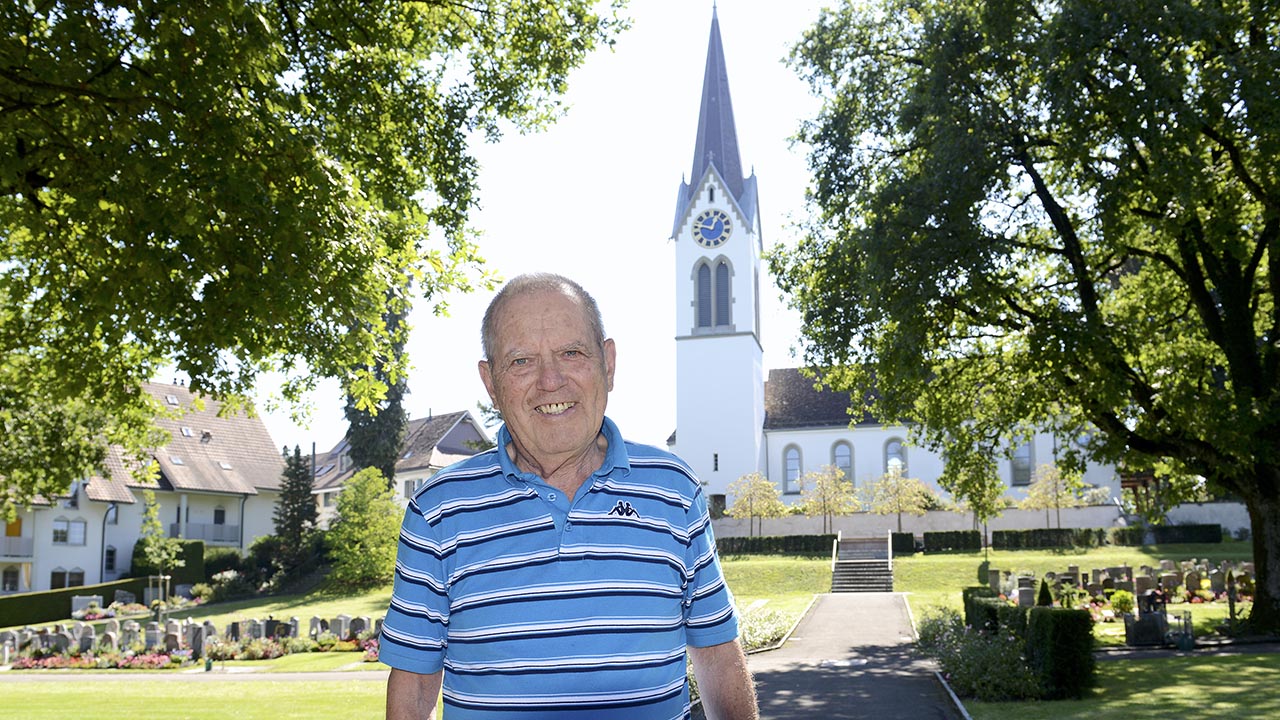‘My husband and I worked in the middle of the rain forest of Cameroon for years,’ says Karina Rey. ‘Between 2012 and 2017 we built and refurbished well over 1,000 drinking water wells,’ explains the Fairmed employee, describing the unimaginable poverty. Vibrant and colourful life. Warm and spirited people. ‘The people of Cameroon have an ability to live in the present. Death is so near and omnipresent that people possess a special appreciation for life’. After a short pause, she continues: ‘There’s so much death in the rain forest of Cameroon and it comes so suddenly. This lends a different meaning and even a different appreciation to the here and now’.
Karina Rey says that an infirmary was located not far from the Rey family home. It was poorly equipped. The church tried to help – a sister worked there. ‘I was there quite often, making new contacts. Once when I happened to be there, I heard a woman shrieking from behind a curtain. She watched on as her son’s gaping wound was being stitched up with no local anaesthesia. The boy was biting on a piece of cloth, and I thought to myself, this can’t be’. She pauses before relating another sad example. ‘Our co-worker’s 14-year-old son stumbled while playing football and complained of abdominal pain. A few days later he died of a ruptured spleen’. Karina Rey shakes her head. ‘A needless death. If he had received the proper medical treatment, there’s no doubt that he would still be alive today’.
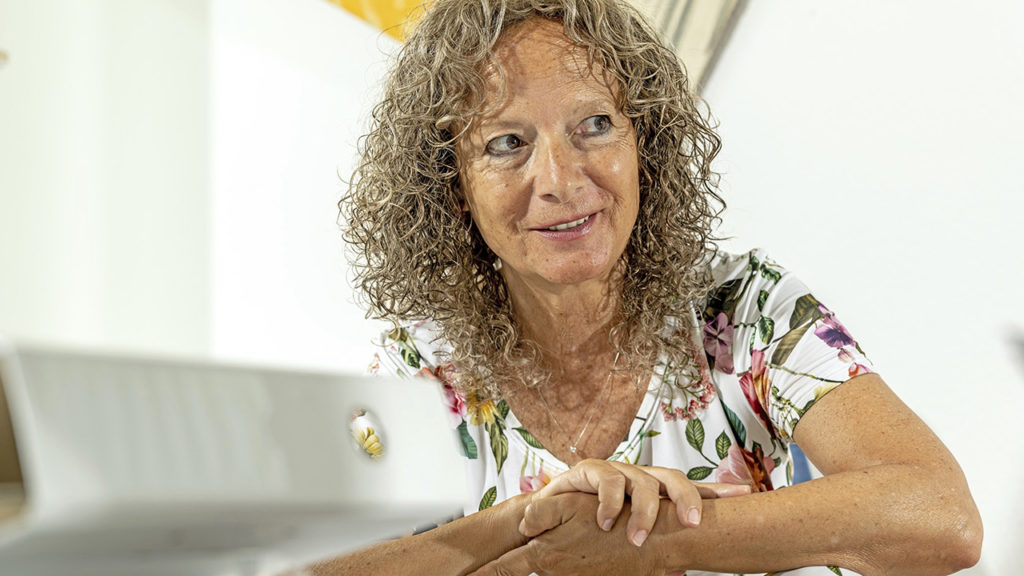
Helping where the poorest of the poor live
‘So we searched for an organisation that was willing to work with us to build a hospital,’ says Karina Rey. The first hospital was built in the middle of the bush. It is still in operation. ‘The hospital has an operating room, a laboratory, an X-ray room, ultrasound and a large number of beds. It’s usually well visited and well occupied. On occasion, specialist doctors, such as dentists and ophthalmologists, come in from the city in order to provide comprehensive health care’.
After she returned to Switzerland in 2017, Karina Rey went searching for an organisation ‘that was active in exactly the things that had been part of my life for so many years. Health is something very precious. Without your health, it’s impossible to work, so you can’t get out of the vicious circle’. She wanted to help alleviate neglected diseases among neglected people.
Fairmed works with local teams
That’s how the highly dedicated Karina Rey found her way to Fairmed. She has been working as a donor support specialist since 2018. The aid organisation Fairmed, which older people may still know as Leprahilfe Emmaus Schweiz (Leprosy Relief Emmaus Switzerland), cares for the poorest of the poor in the world’s most remote places. We get involved in places where diseases of poverty run rampant. We carry out projects in places where maternal and child mortality are high, where people can rarely find employment and earn a living. We help in places that suffer from a large amount of neglect in society, where people are excluded from the health care system’.
Fairmed works on-site exclusively with local teams. As Karina Rey notes, it is the locals who already have a network in the area, and a lot of input comes from the local populace who see where help is needed. ‘We provide financial support while applying local know-how and experience,’ Karina Ray explains. ‘Local employees have the advantage of speaking the local languages – of which there are about 250 in Cameroon – and they understand the culture and needs better than anyone else’.
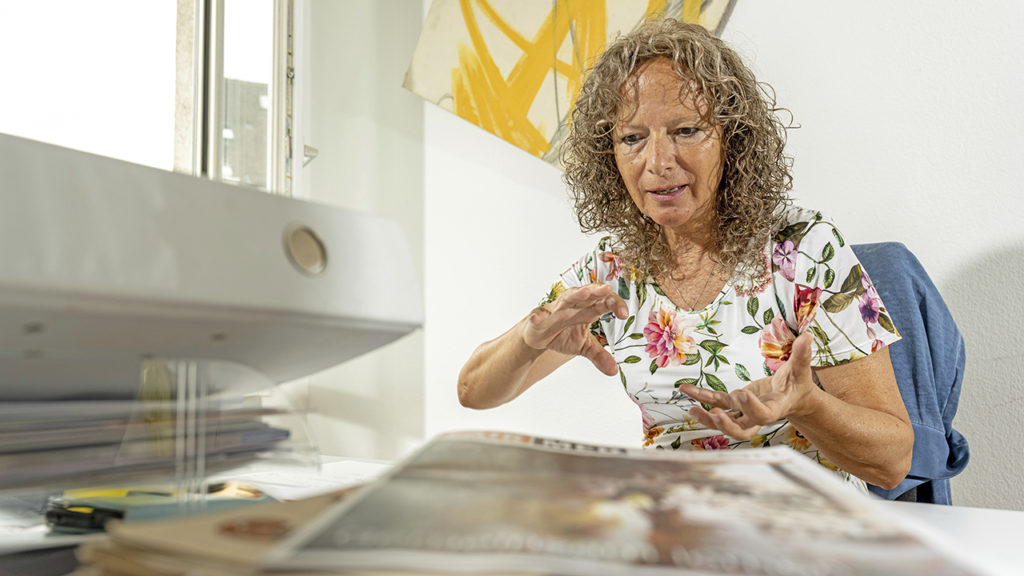
Even a small donation can make a big difference
It’s amazing what our donations can achieve. Karina Rey cites some examples: ‘Reconstructive foot surgery after leprosy costs around CHF 360 (Swiss francs). Outpatient treatment of injuries caused by leprosy costs CHF 6.50. If a patient develops sepsis, treatment costs rise to CHF 140’. She cites an additional example: the training of local health care workers is also a core element of Fairmed’s work. Health workers go through 18 months of basic medical training and receive further training and ongoing professional development opportunities from Fairmed. Subjects covered in training programmes range from paramedic training to midwifery, pregnancy counselling, the treatment of neglected tropical diseases, how to lead self-help groups for mothers or for people with physical or mental disabilities, the dissemination of medical knowledge and even the professional maintenance of medical instruments and the care of Covid patients with mild to medium-level symptoms.
One day of training or professional development for a local health worker costs between CHF 8 and 35 per person per day, depending on the course content.
People in such regions often lack training and knowledge. ‘In Cameroon, we were living in the middle of the forest,’ says Karina Rey. ‘Far away from what we would call ‘civilisation’. It was a three-hour walk just to go see somebody who was knowledgeable and able to provide medical advice about a health problem’.
Karina Rey learned first-hand what the rural population needed: ‘Clean water is a basic need, and so is health care. If you’re healthy, you can work and take care of your family. Your livelihood is assured. Your children can go to school’.
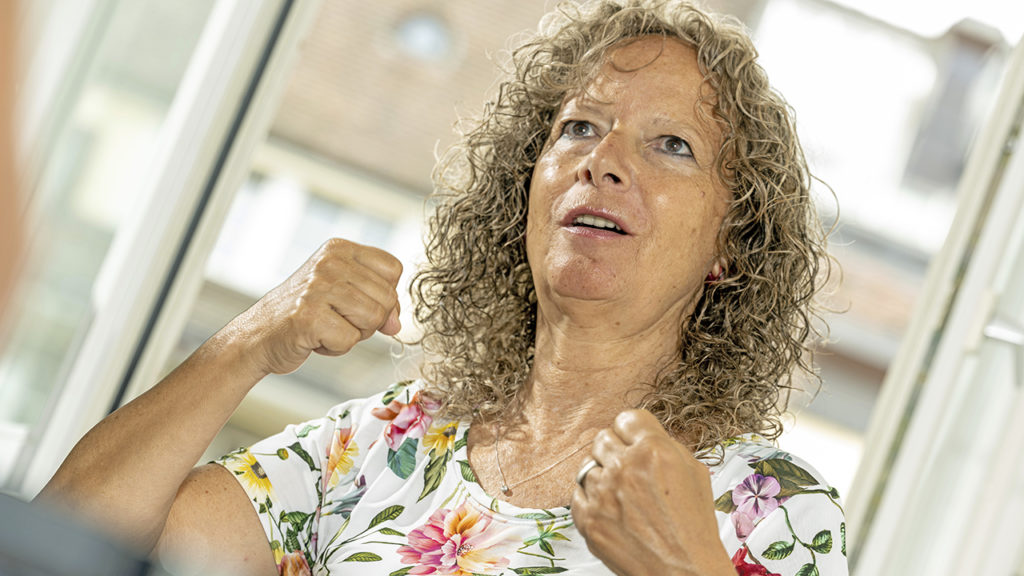
Integrating women in development work
Involving and integrating women in development work is important at Fairmed. They are usually the ones managing the money. In India, there are volunteers who go from village to village assisting people with their health issues. They receive bonuses when they track down and resolve cases.
Mothers’ groups also play a central role for Fairmed. They know what stops other women from coming to the health centre. ‘We teach women that they have a right to good health,’ says Karina Rey. ‘We promote awareness of looking after their own health and that of their daughters’. Where possible, women are hired locally. ‘The proportion of women is important,’ explains Karina Rey.
Heartbreaking fates
In Cameroon, Karina Rey encountered people with heartbreaking fates. I want to know how you dealt with it. The Fairmed employee and mother of three daughters says that it’s difficult. ‘Only a six-hour flight away from Switzerland, there are people who are barely surviving. They are lacking all kinds of essentials and are living hand to mouth’.
Yet there is no starvation in Cameroon, says Karina Rey. ‘Life is dominated by the lush rain forest there’. But the regular heavy rains can make life very difficult. ‘It can suddenly start raining and feel like you were taking a shower. Nothing gets dry. Everything is alive, the water is full of insects and worms – full of parasites,’ describes Karina Rey. There is a discrepancy, she says, between how much we’re investing to combat the coronavirus and how many people in Africa are dying for the most nonsensical reasons.
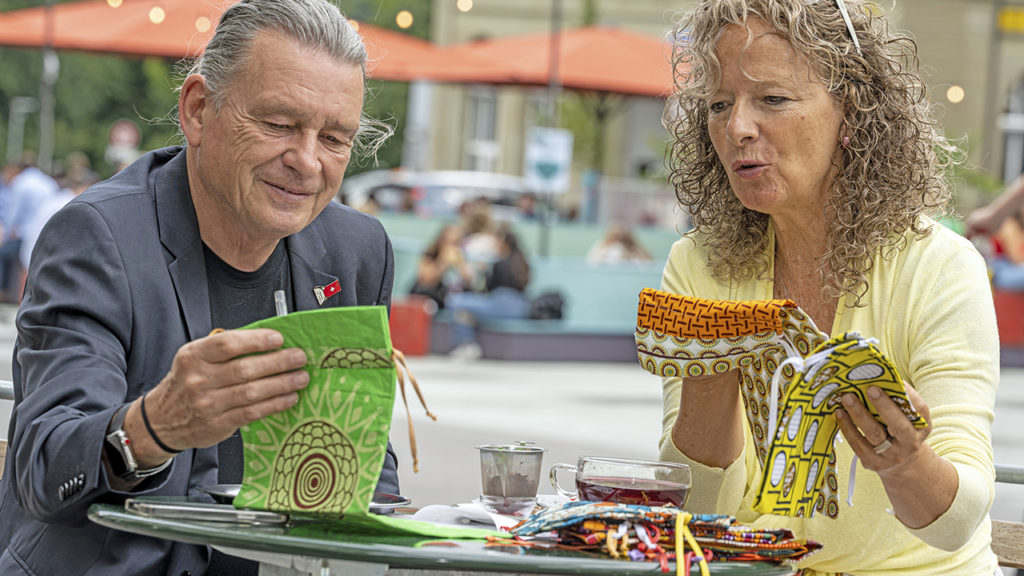
Learning to appreciate the moment
Karina Rey says that she has learned a lot from the people in Africa. For example, living in the here and now. ‘Death is a part of life – it’s not ignored or stigmatised’. Her eyes light up. ‘This unbelievably generous hospitality never ceases to amaze me. People give and share regardless of how little they may have. And they do it with great warmth and joy’.
Living in the now. What that means according to Karina Rey. She laughs: ‘People appreciate the moment. They delight in small things and express their feelings. In Africa, people are allowed to show their joy, it runs through their entire bodies. When somebody feels a need to yawn, they simply yawn. When they laugh, they may literally roll on the floor’. Karina Ray pauses, then emphasizes: ‘In the same way, people also allow plenty of space for their pain. It’s allowed to come out, loud and heavy. This is considered necessary in order to be cleansed of one’s pain. Not at all like us’. She looks at me and says, ‘I love their incredible directness. They really show their feelings’.
Text: Martin Schuppli, Images: Ueli Hiltpold
Fairmed is a partner of DeinAdieu. See profile



